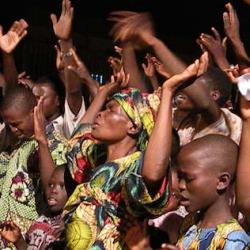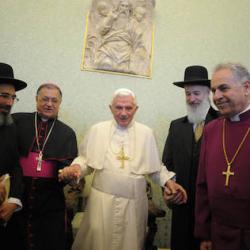During the discussion at Biola Tuesday evening, Carl Trueman expressed the worry that Reformational Catholicism was at odds with the word-centeredness of the Reformation. This post is intended as reassurance.
First a bit of apologia pro vita mea, and for mea friends, inevitably mixed with a dash of Barnumesque self-promotion. I have written about 30 books. Of those seven have been directly on biblical and hermeneutical topics: House for My Name; 1 & 2 Kings; The Four; From Behind the Veil; The Promise of His Appearing; Deep Exegesis; A Son To Me.
I have served two churches as a pastor, preaching nearly every Sunday for a total of 15+ years. When I have not been a pastor, I have taught Sunday school, nearly always on a book of the Bible. Many of the posts on this blog are tiny pieces of (sometimes speculative) exegesis. When people ask me what I do for a living, I often say that I am primarily an exegete. Blank stares often follow.
When I’m not writing commentaries and Bible surveys, my books are biblically-informed. Blessed are the Hungry is a set of biblical meditations on the Eucharist, A Great Mystery a collection of wedding sermons; my dissertation, Priesthood of the Plebs, includes long exegetical sections on Old and New Testament passages; my little book on The Baptized Body also includes a fair bit of biblical discussion; Between Babel and Beast develops a typology of empires from Scripture; my book on worship music, From Silence to Song, teases out liturgical conclusions from 1 Chronicles; Deep Comedy explores the homology between Trinitarian theology and biblical eschatology. I polemicize”against doctrine” in Against Christianity insofar as doctrine screens us from exposure to the Bible.
Even Defending Constantine, primarily an historical work, ends with a chapter trying to place Constantine within redemptive history. Gratitude is an intellectual history, but the plot turns on the impact of the New Testament on practices of reciprocity, so my exegesis of Western gratitude is rooted in exegesis of the Gospels and Paul.
I’ve written books on literary topics, some of which have been criticized for their tendency to allegorize literary texts, forcing them into a biblical mold (of course, I don’t think that’s what I’m doing). My long-ago excursion into children’s fiction, Wise Words, tells tales in which the book of Proverbs provides the morals and biblical typology provides the plots and characters.
Pardon the overkill, but I think my record demonstrates that, unless I’m bipolar, I won’t be favorable to any ecclesial agenda that marginalizes Scripture. We’ll leave the psychological diagnosis to the side.
On the contrary, what I have been calling “Reformational Catholicism” is maximally biblical. I would like to see the whole Bible taught with depth, power, and beauty in every church in the world. I want churches to adopt liturgies filled of the word, obedient to the word, where the word is heard and taught and sung, churches where there are many, many venues for teaching the Bible outside the liturgy. I would like kids growing up knowing the days of creation and the floor plan of the tabernacle, teens who can name and describe the different sacrifices of Leviticus, adults who can sketch an outline of the book of Revelation.
One of my complaints against contemporary Protestantism is that it is nowhere near word-based enough. Protestant churches are often not Bible-based, but our-favorite-handful-of-texts—based or Bible-interpreted-through-confession—based.
Carl might be worried about the unintended effects of “Reformational Catholicism,” that, because it emphasizes liturgy, it might drift into biblical minimalism. That worry, it seems, assumes a different understanding of liturgy than mine: Liturgy is preeminently God’s self-gift to His people, and that self-gift comes through Word and Sacrament. To my way of thinking, diminishing the role of the word wouldn’t advance liturgy; it would decimate the liturgy, leaving a limping half-liturgy (or less) of wordless sacrament. That was the un-liturgy that the Reformers quite rightly attacked as a Babylonian captivity of the church. I have no interest in encouraging anyone to return to that exile.











